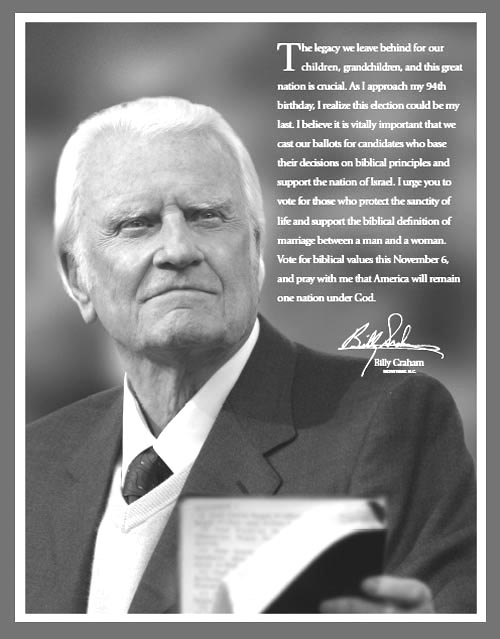Latest creation poll: 46% still believe
Body
“Proving once again that Americans aren’t buying pro-evolution scientists’ dogma, 46 percent of adults in Gallup’s latest survey say they believe God created human beings within the past 10,000 years”
Discussion
In the midst of controversy, Dinesh D’Souza steps down as president of The King’s College
Body
World Magazine: D’Souza resigns
CT: Dinesh D’Souza Resigns as President of The King’s College
Dinesh D’Souza: Statement of resignation
Discussion
Federal Appeals Court rules for Manchester, Mo funeral protest ban
Body
Westboro Baptist Church dealt setback as court upholds funeral protest ban
Ruling in favor of Manchester, Mo., 11 members of 8th U.S. Circuit Court of Appeals found that the city’s ordinance barring protests at funerals met constitutional muster because it was narrowly written and offered picketers ample opportunities to express their views in other ways.






Discussion